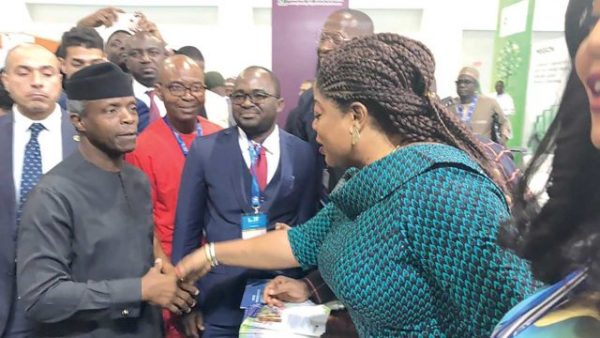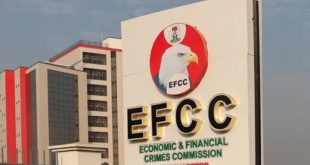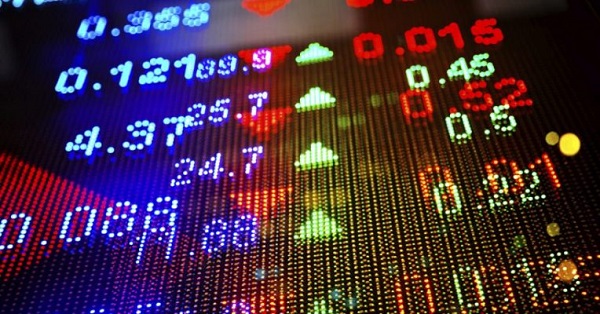
*How private sector participation can connect markets, enhance competitiveness, others
*Fidelity reaffirms support for Nigerian exporters and MSMEs
With Africa’s working population of over 600 million people set to be doubled by 2040, the continent is positioned to become the world’s next emerging economy overtaking both China and India.
The constitution of an improved business environment and policies, increasing urbanisation, a growing and better-educated workforce and intra trade relationships are required to make the continent the capital of world businesses.

Unfortunately, its geographical, political, economic and social heterogeneity has become a monster to this vision. These have contributed to lack co-operation and economic integration among countries, visible in the continent’s gloomy business environment, fragmented economies and underexploited growth potential.
The continent is losing out on billions of dollars in potential trade every year because of a fragmented regional market and the fact that cross-border production networks that have spurred economic dynamism in other regions, especially East Asia, are yet to materialise in Africa.
This is despite the efforts of about 50 countries that signed up to the African Continental Free Trade Area (AfCFTA) to boost intraregional trade and investment. The agreement aims to create a single continental market for goods and services, with free movement of businesspersons and investments.
According to a UN’s draft African Regional Integration Index (ARII), trade in the continent remains at its lowest ebb. Its large infrastructure deficit remained a major hindrance to intra-regional trade.
The Index, known as ARII, was set up to monitor and evaluate the status of economic integration among African countries and provides basis for member nations to track their progress.
Five indices were analysed; trade integration, regional infrastructure, productive integration, free movement of people and macroeconomic integration.
Also, integration in services contributed more than 53 percent of the continent’s Gross Domestic Product (GDP), but ratification of protocol on the free movement of people has been slow, despite 2016 launch of the Common Electronic Biometric African Passport, and the African Union protocol, according to the index.
The report also identified that there are still major hindrances to meeting the goal of increasing intra-African trade to 25 percent by 2023 from the current 15 -18 percent.
It is imperative to note that only about 12 percent of Africa’s total trade took place within the continent over the past decade. One of the major reasons for the weakness in the continent’s regional trade performance has been the lack of a private sector that is dynamic and vibrant enough to seize existing opportunities in the trading system.
So, the just concluded Intra-African Trade Fair 2018 (IATF 2018) in Cairo, Egypt was a defining moment for Africa and signals the beginning of a new trade paradigm in the continent.
Considered the first of its kind, and conceived as the first major outcome of the AfCFTA, Africa’s single market of over one billion people, the fair was expected to herald a shift from the current extra-continental skewed trade landscape to increased intra-continental trade footprints and regional market integration.
The inaugural edition of the IAFT came with big promises particularly in relation to trade facilitations and financing deals brokering.
Former Nigerian president, Olusegun Obasanjo, who is also chairman of the IATF Advisory Council, had before the fair disclosed that it came after the successful signing of the AfCFTA, which seeks to enhance trade and economic growth across Africa, and expressed conviction that the IATF would contribute immensely to the implementation of the AfCFTA.
He described the trade fair as a crucial instrument in making the AfCFTA work and said that Africa should focus on “what trade is needed, where the markets are, the size of, and the standards in those markets, and how to join the value chains that serve them”.
“It is our duty to create the environment where the entrepreneurial spirit of Africans can succeed.
“Stronger economies yield the rewards of better health, education, improved employment opportunities and prosperity for all. I want our future generations to have greater expectations, greater choices and greater opportunities to succeed. It should be their right and I want this to become the norm rather than the exception.”
The Fair delivered on all fronts with total deals in excess of $25 billion brokered at bilateral and multilateral business and country levels. Interestingly, the federal government signed a total $2.2 billion investment deals at the IATF for regional trade expansion and industrial parks.
Professor Benedict Oramah, President, African Export-Import Bank (Afreximbank) while responding to the investment drive said, “We are indeed proud to witness this indication of what the AfCFTA Agreement can yield for intra-continental trade.
“By bringing together buyers and sellers under one roof, in the first intra-African trade fair of its nature on the continent, Afreximbank is succeeding in facilitating the transformation and integration of African economies”, he added. Fidelity Bank Plc was part of the Nigerian delegation at IATF which held from December 11-17, 2018 to forge stronger business ties with foreign investors as well as address the prevailing challenge of access to trade and market information amongst countries on the continent.
Led by the Bank’s Executive Director, Lagos & South-West Directorate, Mrs. Nneka Onyeali-Ikpe and other senior Executives, the Bank through its robust engagement with over 100 exhibitors reaffirmed its unbridled commitment to advancing the course of Nigerian exporters and Micro Small & Medium Scale Enterprises (MSMEs).
“As a Bank, we are really passionate about building Nigerian entrepreneurs. “We have committed ample human and material resources to run the products and platforms in order to drive this objective.
“Its short-term goal is to become the most innovative SME banking business in Africa in the next two years, whilst helping our clients build sustainable businesses of the future”, she said.
The Bank’s long-running support for the growth of small businesses in Nigeria was evident as it extended invitations to its customers’ bank-wide to the attend the week-long event. The following companies made the trip including the following: Honeywell Flour; African Agricultural Products; Tigers Foods Limited; GB Tannery; amongst others.
From a purely banking business perspective, Fidelity had an excellent outing as demonstrated by the lender securing financial deals in excess of $110 million. The bank’s customers secured product off-take deals in excess of $5 million.
Key deals negotiated in this regard but are not limited to the following: GB Tannery secured leather off-take deals with two Italian companies; African Agriculture Products secured a sesame seeds trade deal with a Sudanese commodity trader; Honeywell secured deal with the Egyptian Army.
Speaking on his experience at the Fair, Garo Jijjani Sule, Managing Director, GB Tannery Limited was full of adulation for the Bank, further disclosing that the Bank has consistently supported efforts aimed at boosting non-oil sectors of the economy by providing innovative funding schemes and technical advisory services to small businesses.
Asides the transactional benefits of the IATF outing, the trip also afforded the Bank the opportunity to forge stronger bonds with its customers to unlock more values from the relationships.
At the event, Nigeria hosted its Country Day with the Vice President, Prof Yemi Osinbajo, leading a tour of the Nigeria pavilion at the IATF 2018. In his address, he said, “Nigeria places a high premium on the economic integration of the continent and has come to the IATF with a delegation that represents a wide variety of industries and goods, showcasing the rich diversity of the country.” He said Nigeria’s digital economy was one of the fastest growing in Africa, with the technology sector contributing nine percent of the nation’s GDP.
The vice president also lauded the country’s growing entertainment sector, noting that Nigeria’s film industry, the third largest film industry in the world, generating about $600 million annually and being a critical employment generator in the country.
Conversely, the specific target of IATF and the broader AfCFTA is to move intra-African trade from 15 percent of total continental trade to 22 percent by 2021. In contrast, intra-continental trade levels in Europe and Asia are 59 percent and 51 percent respectively.
To this end, Fidelity Bank will continue to explore fresh opportunities to improve the competitiveness of exporters and MSMEs in Nigeria. The lender had partnered with the Nigerian Export Promotion Council (NEPC) and the Lagos Business School (LBS) to provide impactful, world-class training needed to improve the attractiveness of Nigerian enterprises, particularly export-oriented businesses and the associated value-chain players in the international market.
 MMS PLUS NG – Maritime, Aviation, Business, Oil and Gas News Online Newspaper with coverage in Maritime, Oil and Gas, Aviation, Power and Energy as well as Financial News
MMS PLUS NG – Maritime, Aviation, Business, Oil and Gas News Online Newspaper with coverage in Maritime, Oil and Gas, Aviation, Power and Energy as well as Financial News









